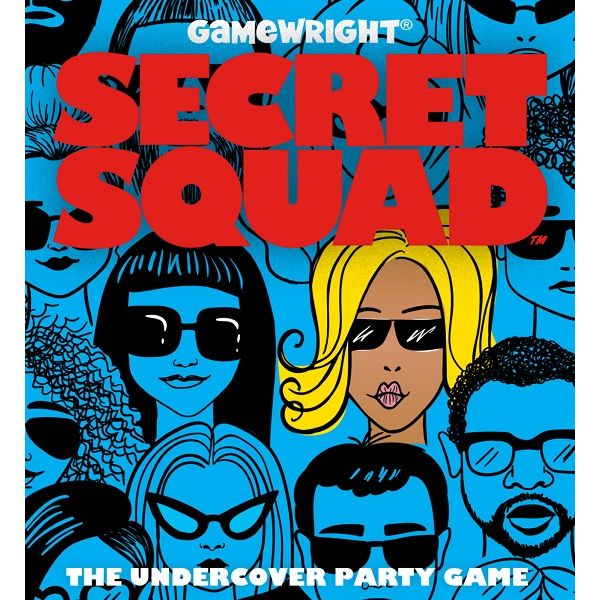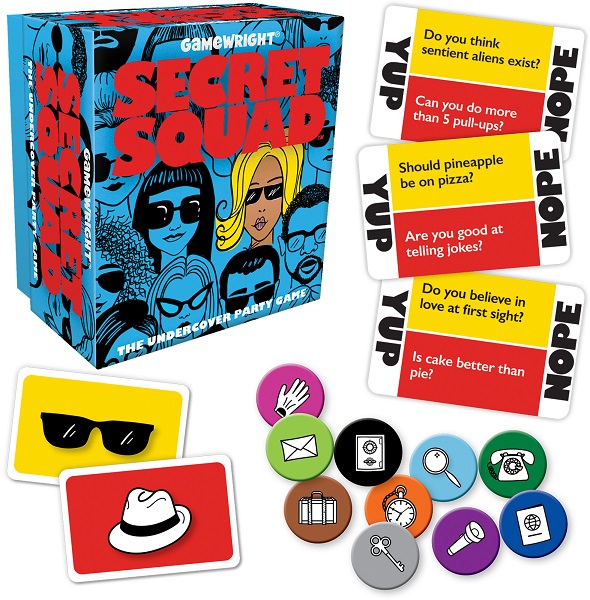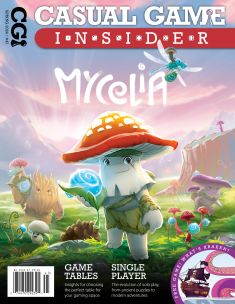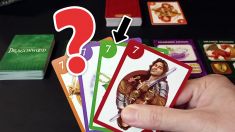Find Your Team and Get to Know Each Other in Icebreaker Game Secret Squad

Answer three questions each round and use the other players’ answers to figure out who’s on your team. Make a successful deduction to earn points!
Published by Gamewright, Secret Squad is a very light icebreaker party game with a flexible player count and simple rules.
Gameplay
You take an equal number of yellow and red team cards (rounded up for an odd number of players), shuffle them, and deal one to each player. You keep your team card secret. The question cards are set in the middle of the table and each player chooses a player icon and takes the four matching player tokens that go with that icon.
You draw a question card and set it in the center of the table. There are two yes or no questions written on the card, one in red and one in yellow. On the left of side of the card is a yes, and on the right side is a no. Each player places their icon on one side or the other, to correctly answer the question that is in the color that matches his team card. Questions come in a wide variety of topics, ranging from “do you like dancing” and “would you like to work as a DJ for at least an evening” to “can you hum ‘The Imperial March’ from Star Wars” and “do you own a drill?”
After each player has answered the question, you repeat the process with another two question cards. Then everybody examines how each player answered each question and they must simultaneously all point at a player they believe to be on their same team.
Players then reveal their team cards. If you found a player on your team, you earn three points. If someone correctly pointed at you, you also get an additional point.
You then start a new round, dealing out new team cards. The player with the most points at the end of three rounds wins the game.

Review
Secret Squad serves as a fun icebreaker or getting-to-know-you game. It plays quite fast, is easy to set up and teach, and lasts a short but sweet three rounds. You’re trying to deduce who is on your team, but there’s none of the debate or arguing that you find in more standard social deduction games. It’s all about trying to logically analyze the solution based on each player’s answer, and zoning in on a single member of your team.
The game plays best with a group that knows each other all about the same amount, and best with no one you know really, really well (really close family members will probably find some of the more fact-based questions too easy for establishing someone’s team). But the range of questions is fun and can provide some enjoyable conversation starters. The fact that the game can be played with up to ten people also helps establish this is a solid game for getting to know each other.
All the questions we encountered were family-friendly, although some are a bit weightier than others, and the game would be a solid fit for teen groups or parties. The tokens are a bit thin, but the text on the cards is quite clear and easy to read. It won’t be for everyone, but if you’re looking for an icebreaker game it should fit the bill nicely.
Pros: Range and numbers of questions, can start conversations
Cons: Some questions will be too easy for players who know each other very well
Disclosure: we received a complimentary review copy of this game.












